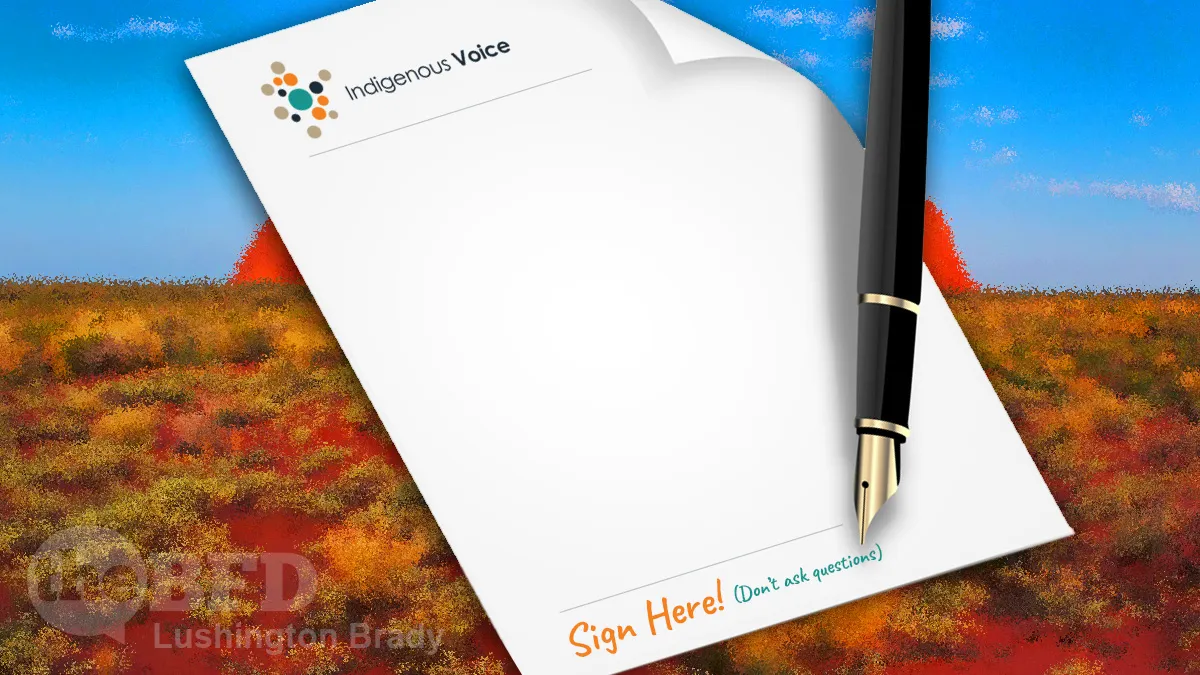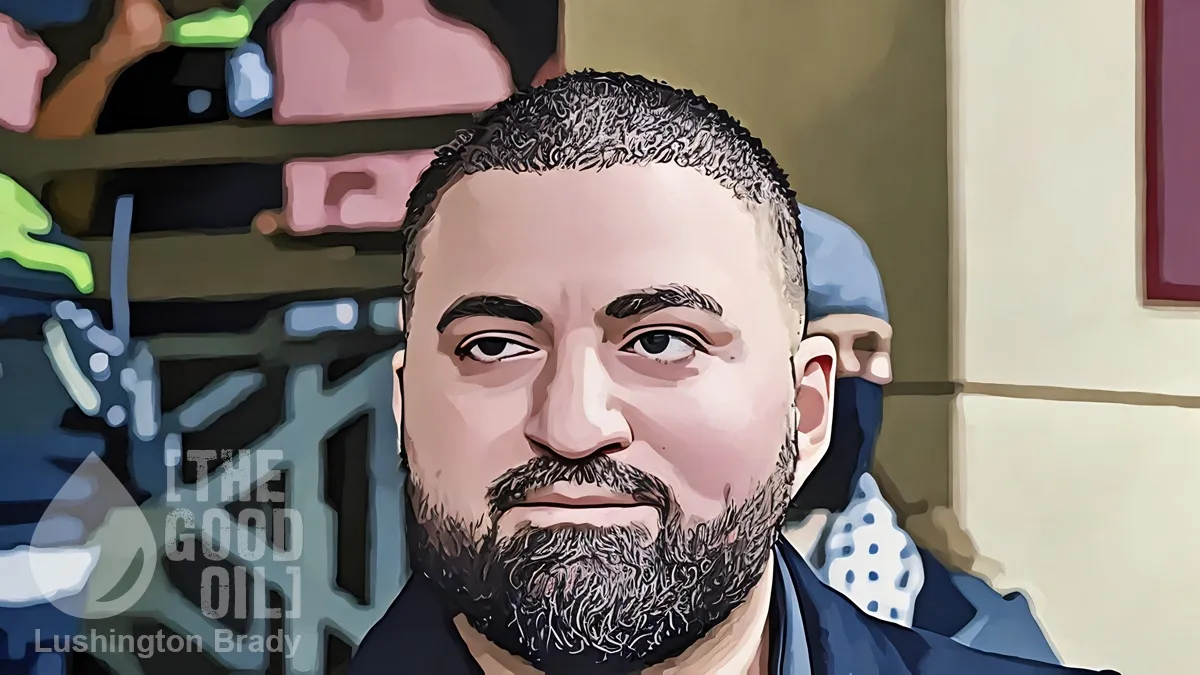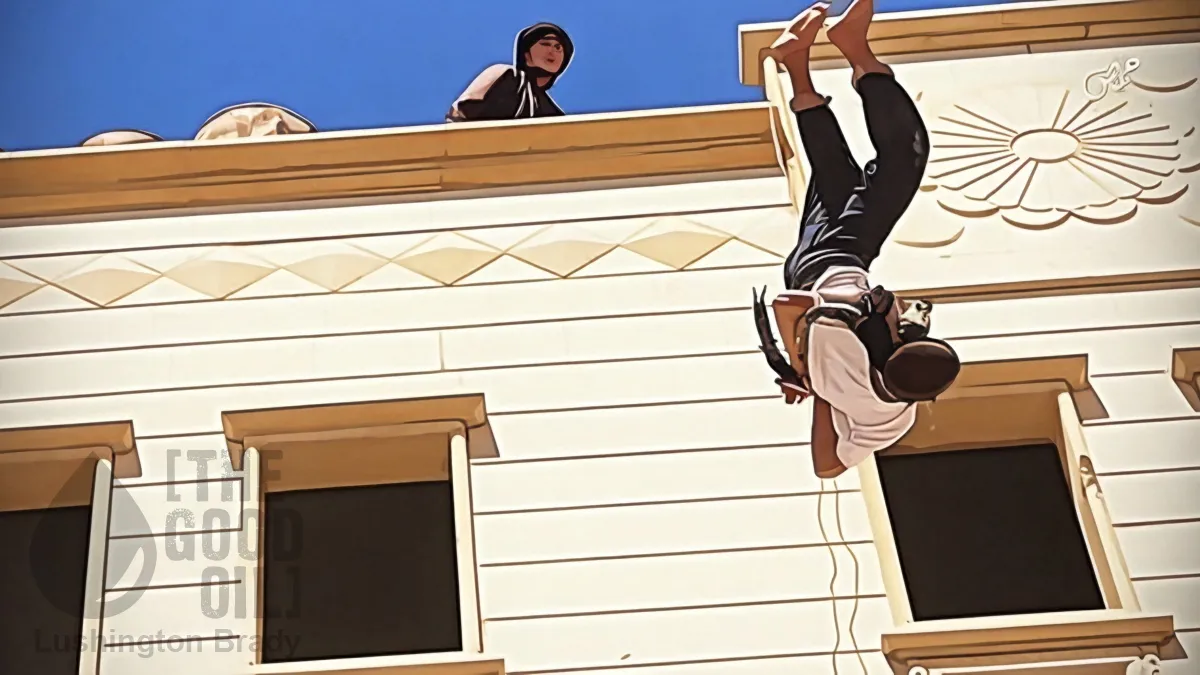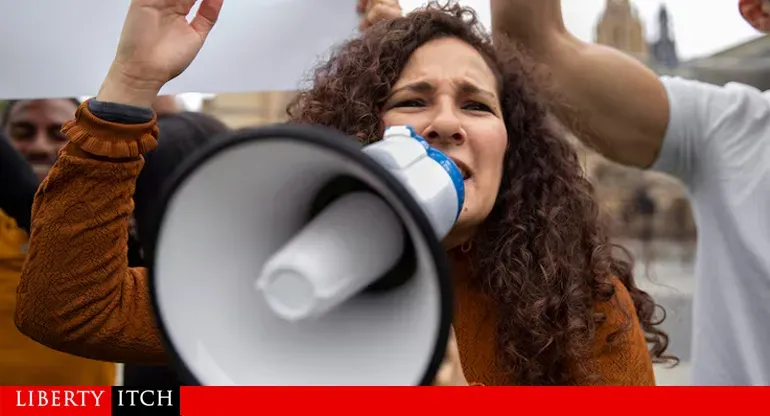Table of Contents
If Anthony Albanese learned anything from Australia’s 1999 Republic referendum, it’s clearly: Don’t tell them what you’re really up to. The best thing John Howard ever did was to force the Republicans to ‘fess up to the Australian people exactly what they were up to. Confronted with an explicitly detailed model for the kind of Republic the elite favoured (by and for, surprise, surprise, the elite) a nation, to quote Morrissey, turned its back and gagged.
Fast forward to the “Voice” referendum mooted for next year. Albanese started off by not even telling voters it was on the cards — that unpleasant surprise was only sprung after the election. Now he won’t tell us what, exactly, we’ll be voting on.
“Just vote first and trust us: we’re politicians”, is the line. Yeah, right.
But it’s no surprise that Albanese doesn’t want to tell us what we’re voting on, because the more they tell us about it, the more we can smell a 1000-pound rat.
Former High Court justice Kenneth Hayne recently attempted to put to bed fears that a constitutionally entrenched Indigenous voice would become a lawyers’ picnic that would “derail the ordinary workings of parliament and the executive”.
In fact, his observations in this newspaper on Monday confirm the validity of those fears once and for all.
The Australian
Hayne’s argues that there just won’t be litigation before the High Court as a result of the “Voice”, although, he also says, there might be lots of litigation, but don’t worry about that — trust the courts.
Don’t take my word for it:
First, it is a necessary and inevitable consequence of our having a federal Constitution that the High Court has the ultimate responsibility for the maintenance and enforcement of the boundaries within which governmental power might be exercised.
Second, anyone can start litigation, including constitutional litigation, so long as their claim is not frivolous or vexatious. But if they do, the questions become: Will they win? And, if they do win, what orders will the court make?
The Australian
Are you convinced by that?
Remember, this is the High Court that explicitly believes in magic: it has ruled multiple times on the “special spiritual relationship with the land” supposedly enjoyed by just one race in all of Australia. In fact, the High Court believes this ooga-booga magic is so strong that even someone who wasn’t born in Australia or has ever been a citizen is magically immune to deportation due to their extensive criminal record — solely because of their race and the magic that comes with it.
So, you’ll forgive me if I’m a little bit sceptical about blindly trusting the Court to rule on “matters relating to First Peoples” — a phrase which even Haynes admits is of broad ambit.
To borrow a phrase from elsewhere, as a former High Court judge, he would say that, wouldn’t he? Hayne cannot presume to know the composition of a future High Court, whether it will choose to become involved in matters about the reach and application of the voice, or what it will decide […]
Hayne has also demolished, hopefully permanently, the argument that the Albanese amendment preserves parliamentary supremacy and that parliament alone will determine the powers and processes of the voice. Hayne makes clear that the High Court will be the ultimate decision-maker as to the voice’s powers. Parliament is a mere bystander.
The Australian
None of this is to say that I have no faith in the High Court and neither should anyone else. The High Court, like all constitutional courts, does an excellent job when it comes to “black letter” judgements. That is, ruling that the Constitution clearly says something and that that is that.
The danger is when a constitutional court is stacked with activists who are given vague (or non-existent) directions to play with. Think, for instance of the 1970s US Supreme Court making its Roe v Wade decision, not on the letter of the Constitution, but, as you might say, “the vibe”.
You know, like “the vibe” when John Key signed New Zealand up to the UN Declaration on the Rights of Indigenous Peoples. What could go wrong?
Well, you all know that, now, with Five Waters just having been rammed through parliament.
Australians can just thank their lucky stars that our elites were dumb enough — or, more likely, arrogantly self-assured enough — to let we hoi polloi vote on the matter. Just like in 1999, they may be in for a nasty surprise.









